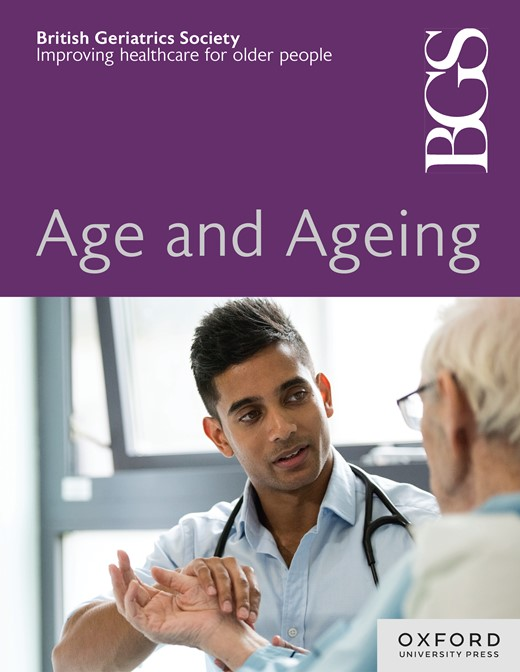Barriers and facilitators to implementation of mental capacity legislation in care homes for older adults in the United Kingdom: a mixed-methods systematic review
IF 7.1
2区 医学
Q1 GERIATRICS & GERONTOLOGY
引用次数: 0
Abstract
Objective Mental Capacity legislation defines when a person lacks capacity and subsequently supports individuals to make as many decisions as possible for themselves. Whilst frameworks exist, care home staff often feel unsupported with insufficient knowledge and training. This review aimed to understand barriers and facilitators of implementing mental capacity legislation in care homes for older adults in the United Kingdom. Methods A systematic review was conducted and 3041 potentially relevant studies identified, with 13 studies eligible for inclusion. 11 focused on the Mental Capacity Act (2005) and two on the Adults with Incapacity (Scotland) Act 2000. Barriers and/or facilitators were extracted and subsequently mapped to the Capability, Opportunity and Motivation model and Theoretical Domains Framework. Results Barriers included poor access to training, low staff confidence and a lack of understanding about using legislation in context. Conversely, staff reported in-person training using real-life examples, robust organisational policies and processes and respecting person-centred care were key facilitators. Sense-checking conversations were conducted with care home staff (n = 18) to interpret findings in the context of current practice. Conclusions This review presents complex and multi-faceted barriers preventing the implementation of mental capacity legislation in care homes for older adults. Whilst care home staff have now started to appreciate the importance of such legislation, insufficient time, resources and an inability to track staff knowledge prevents effective implementation of the law. Future research should explore how staff are trained about legislation and identify best practices.英国老年人护理院实施精神能力立法的障碍和促进因素:一项混合方法的系统评价
客观精神能力立法定义了一个人什么时候缺乏能力,并随后支持个人为自己做出尽可能多的决定。虽然框架存在,但养老院的工作人员往往感到缺乏知识和培训。本综述旨在了解在英国老年人护理院实施精神能力立法的障碍和促进因素。方法进行系统评价,确定3041项可能相关的研究,其中13项研究符合纳入条件。11项重点是《精神能力法》(2005年),2项重点是《2000年无行为能力成年人(苏格兰)法》。障碍和/或促进因素被提取出来,并随后映射到能力、机会和动机模型和理论领域框架中。结果障碍包括难以获得培训,工作人员信心不足以及缺乏对在环境中使用立法的理解。相反,工作人员报告说,使用现实生活中的例子进行现场培训、健全的组织政策和流程以及尊重以人为本的护理是关键的促进因素。与护理院工作人员(n = 18)进行感官检查对话,以在当前实践的背景下解释调查结果。结论本综述提出了复杂和多方面的障碍,阻碍老年人精神能力立法的实施。虽然养老院的工作人员现在已经开始认识到这种立法的重要性,但时间和资源不足以及无法跟踪工作人员的知识阻碍了法律的有效实施。未来的研究应探讨如何对工作人员进行立法培训并确定最佳做法。
本文章由计算机程序翻译,如有差异,请以英文原文为准。
求助全文
约1分钟内获得全文
求助全文
来源期刊

Age and ageing
医学-老年医学
CiteScore
9.20
自引率
6.00%
发文量
796
审稿时长
4-8 weeks
期刊介绍:
Age and Ageing is an international journal publishing refereed original articles and commissioned reviews on geriatric medicine and gerontology. Its range includes research on ageing and clinical, epidemiological, and psychological aspects of later life.
 求助内容:
求助内容: 应助结果提醒方式:
应助结果提醒方式:


